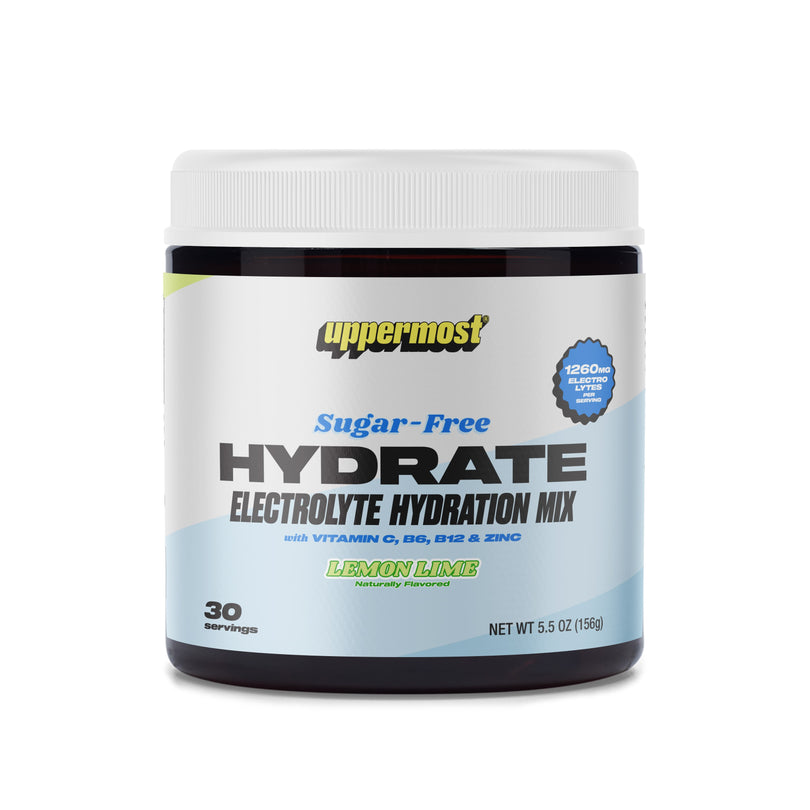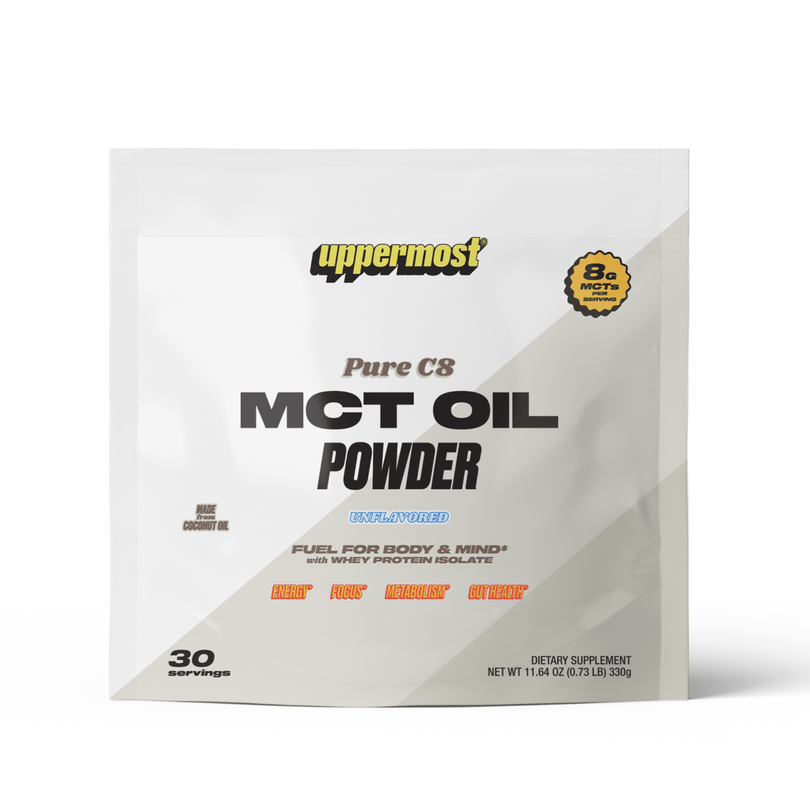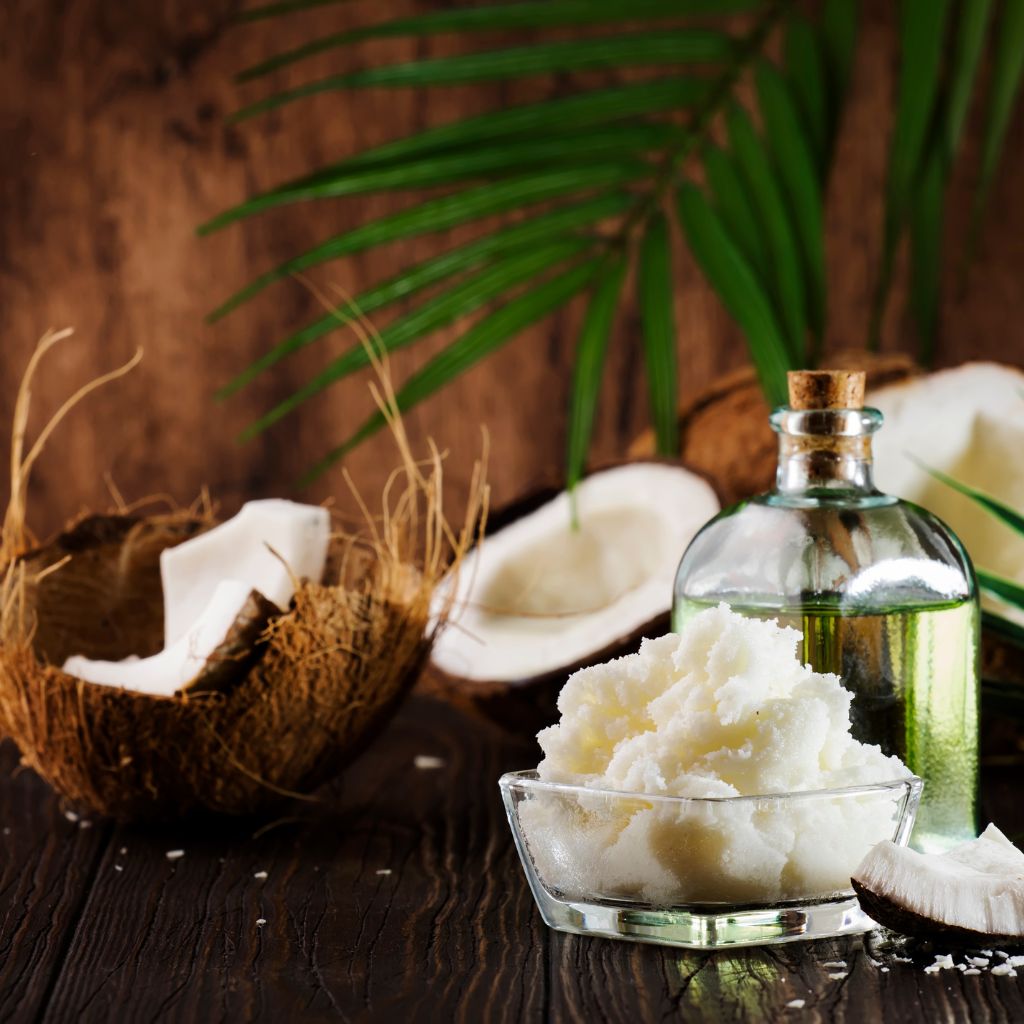Intermittent fasting has taken the wellness world by storm as a popular approach to weight management, improved metabolism, and overall health enhancement. But as people adopt fasting schedules, a crucial question emerges: which foods or supplements break a fast, and which do not? For those incorporating supplements like MCT oil, understanding its impact on fasting is essential. Here, we’ll dive into whether MCT oil breaks a fast, how it interacts with your body, and what you need to consider when adding MCT oil to your fasting routine.
What is MCT Oil?
MCT (medium-chain triglycerides) oil is a type of fat primarily derived from coconuts, though it's also found in palm oil and dairy products. Its unique composition makes it a popular choice for those on ketogenic diets, as well as those looking for an easily digestible fat source that provides a quick burst of energy. The "medium-chain" part of MCT refers to the length of the fatty acid chains in the oil, which are shorter than those in most other fats. This structure allows MCTs to be quickly absorbed by the body and converted into energy, often bypassing the standard digestive process that other fats require.
There are four types of MCTs: caproic acid (C6), caprylic acid (C8), capric acid (C10), and lauric acid (C12). Caprylic and capric acids are typically the most common in MCT oil, with caprylic acid known for being particularly quick to convert into ketones—an alternative energy source produced when the body metabolizes fat in place of glucose.
What Does it Mean to "Break a Fast"?
To determine whether MCT oil breaks a fast, we need to define what it means to "break a fast." Generally, fasting involves abstaining from all calorie-containing foods and drinks to trigger specific biological processes in the body, such as autophagy (the body’s natural cellular repair mechanism) and ketosis (a metabolic state where the body burns fat for fuel instead of carbohydrates). People fast for various reasons, including weight management, improved mental clarity, and potential longevity benefits.
Broadly, breaking a fast can mean interrupting:
- Caloric restriction: Introducing any calories can technically break a fast if the goal is to remain in a calorie-free state.
- Metabolic state: Consuming foods or supplements that impact blood sugar levels and insulin response could shift the body out of the fat-burning state of ketosis.
- Autophagy: Some fasts are designed to trigger autophagy. Certain foods, supplements, or macronutrients could halt this cell-cleaning process.
MCT Oil and Intermittent Fasting: Does It Break a Fast?
Let’s break down the impact of MCT oil on various types of fasting goals.
1. Caloric Restriction
Technically, MCT oil contains calories, so if your fast is strictly defined by caloric abstention, consuming MCT oil will break the fast. A tablespoon of MCT oil contains about 100 calories, which would add caloric intake to your day.
However, the story doesn’t end there, as MCT oil might still be useful during fasting due to its unique benefits. For those fasting for metabolic reasons, MCT oil can be beneficial, as it doesn’t have the same effect on blood sugar levels as carbohydrates or protein.
2. Ketosis and Fat-Burning State
One of the main reasons people turn to intermittent fasting is to encourage their bodies to shift into ketosis, where fat (instead of glucose) is used as the primary energy source. MCT oil supports this process, as it quickly converts to ketones, making it an ideal supplement for those following a ketogenic or low-carb diet.
Since MCT oil doesn't trigger a significant insulin response, consuming it while fasting is less likely to disrupt ketosis. For those focused on staying in a fat-burning state, MCT oil might technically break the fast in terms of caloric intake, but it does not interfere with ketosis. In fact, it may enhance it.
Conclusion for Ketosis: If your goal is to remain in ketosis during fasting, MCT oil likely will not "break" the fast but could instead support your metabolic goals.
3. Autophagy
Autophagy is the process by which the body cleans up and recycles damaged cells. This process is enhanced during fasting when no nutrients or energy sources are present to distract the body from its self-maintenance routine. Some experts suggest that any caloric intake, including from fat, can interrupt autophagy, which means that if cellular repair and longevity are your primary fasting goals, MCT oil may interfere.
Though MCT oil is less disruptive to insulin and glucose levels, autophagy is triggered by the complete absence of nutrient intake. So while MCT oil may keep you in ketosis, it’s less likely to maintain the autophagic state as effectively as a zero-calorie fast.
Conclusion for Autophagy: If autophagy is your primary focus, it’s best to avoid MCT oil during fasting.
Potential Benefits of Using MCT Oil During a Fast
Despite its potential to break a strict fast, MCT oil may still provide benefits for those following intermittent fasting protocols with more flexible guidelines. Here’s how MCT oil might support your fasting regimen:
1. Increased Energy and Mental Clarity
MCT oil provides a quick, clean energy source that doesn’t spike blood sugar, which can be particularly helpful for individuals who fast for mental clarity and focus. MCTs rapidly convert to ketones, which can cross the blood-brain barrier and provide fuel to the brain. This might help you avoid the mental “fogginess” that sometimes accompanies longer fasts.
2. Enhanced Satiety
One of the challenges with fasting, especially in the beginning, is controlling hunger. MCT oil can help with this. Because it’s a fat, MCT oil can promote feelings of fullness without significantly impacting blood sugar or insulin levels, which can be a helpful tool to stay committed to your fasting window.
3. Support for Ketosis
As mentioned, MCT oil converts rapidly into ketones, providing an alternative energy source that’s particularly useful for ketogenic dieters. Consuming MCT oil can keep your ketone levels elevated, helping you maintain a steady energy supply and support the fat-burning process during fasting.
How to Use MCT Oil During Fasting
If you decide that MCT oil aligns with your fasting goals, here are some practical ways to incorporate it:
- Morning Boost: Many people find it helpful to take MCT oil in the morning during their fasting window. This can provide energy and mental clarity to start the day, especially if you’re avoiding breakfast.
- Pre-Workout Fuel: Fasting athletes might benefit from a dose of MCT oil before workouts. The quick energy can support performance without introducing carbs or sugar.
- Afternoon Slump: If you experience an energy dip in the afternoon, a small serving of MCT oil can help without breaking ketosis.
For best results, start with a small amount (around 1 teaspoon) to see how your body responds, as MCT oil can sometimes cause digestive discomfort in larger quantities.
What to Look for in MCT Oil
If you’re ready to incorporate MCT oil into your fasting routine, choosing a high-quality product is crucial. Look for MCT oils derived purely from coconuts, as palm-derived oils are less sustainable and can contain more impurities. Avoid additives or flavorings, and opt for products that specify caprylic (C8) and capric (C10) acids as the primary MCT sources, as these are the most effective for quick ketone production.
At Uppermost, our MCT oil powder is crafted from pure coconut-derived MCTs and contains prebiotic acacia fiber, making it an excellent choice for individuals looking for sustained energy and digestive support during their fasting windows. Our product is designed to be gentle on the stomach, easily mixable, and free from artificial ingredients or fillers.
Final Verdict: Does MCT Oil Break a Fast?
The answer depends on your fasting goals. For those focused strictly on zero-calorie fasting or autophagy, MCT oil will break the fast. But if you’re fasting for ketosis, mental clarity, or energy, MCT oil can be a helpful supplement that aligns with your goals without disrupting ketosis. Its quick conversion to ketones makes it a compatible choice for those on a ketogenic diet or looking for an energy boost during a fasting window.
Ultimately, the decision comes down to personal fasting objectives. With the right approach, MCT oil can be an invaluable part of a fasting routine, offering enhanced satiety, mental focus, and support for ketosis—all without the blood sugar spikes that disrupt the metabolic benefits of fasting. As always, experiment and listen to your body’s feedback to see how MCT oil fits into your unique fasting journey.






